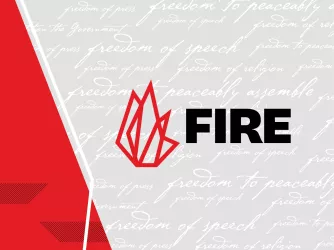Table of Contents
So to Speak podcast: ‘Dare to Speak’ with PEN America’s Suzanne Nossel

On today’s episode of So to Speak: The Free Speech Podcast, we are joined by PEN America CEO Suzanne Nossel to discuss campus censorship, cancel culture, how different generations think about free speech, the attacks on Charlie Hebdo in 2015, and more. Nossel is the author of the forthcoming book, “Dare to Speak: Defending Free Speech for All.”
Show notes:
- Transcript
- Bari Weiss’ resignation letter; Andrew Sullivan’s “farewell letter” for New York magazine
- So to Speak podcast: Debating “Is there a campus free speech crisis?” with Andrew Sullivan, Jonathan Haidt, Suzanne Nossel, Jeffrey Sachs, & Kmele Foster
- “The Coddling of the American Mind: How Good Intentions and Bad Ideas Are Setting Up a Generation for Failure” by Greg Lukianoff and Jonathan Haidt
- Harper’s: “A letter on justice and open debate”
- “Does apologizing work? An empirical test of the conventional wisdom” by Richard Hanania
- “Why we’re honoring Charlie Hebdo” by Andrew Solomon and Suzanne Nossel
You can subscribe and listen to So to Speak: The Free Speech Podcast on Apple Podcasts, Google Play, and Stitcher, or download episodes directly from SoundCloud.
Stay up to date with So to Speak on the show’s Facebook and Twitter pages, and subscribe to the show’s newsletter at sotospeakpodcast.com.
Have questions or ideas for future shows? Email us at sotospeak@thefire.org.
Recent Articles
Get the latest free speech news and analysis from FIRE.

Why YouTube caving to Trump is cowardly

FIRE statement on the White House’s Compact for Academic Excellence in Higher Education

Trump’s tinseltown tariffs threaten free speech
